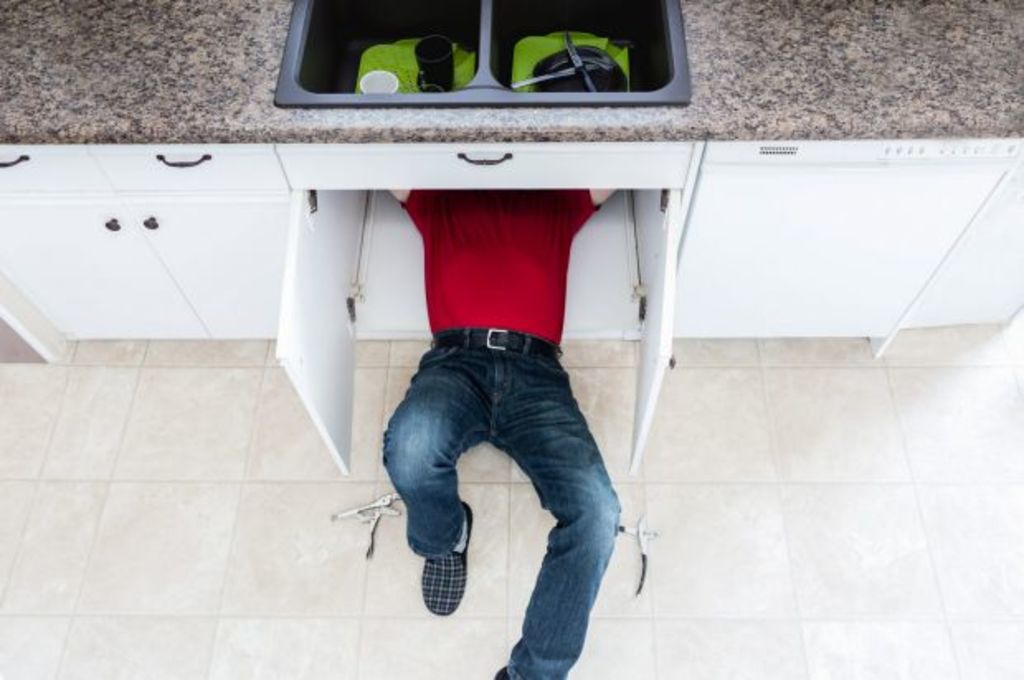Problems with your rental? Here's how to get your landlord to make repairs

What do an infestation of termites, a leaking roof and a broken oven have in common?
They’re all considered urgent repairs a landlord must attend to as quickly as possible.
Issues around repairs are one of the most common complains tenants raise with tenant advocacy services, says senior policy officer with the Tenants Union of NSW Leo Patterson Ross.
As a tenant, you need to know what kind of maintenance a landlord is expected to look after and how to make sure the place you call home doesn’t fall into disrepair under your watch.
Whose problem is it?
Landlords need to keep the premises in a reasonable state of repair taking into consideration the age of the property, the amount of rent you are paying and the prospective life of the premises. They also need to comply with building, health and safety laws.
While you’re responsible for things like mowing lawns and replacing light bulbs, the landlord needs to attend to breakdowns of supplied appliances like ovens and water heaters, damage from storms or a burst water pipe.
Patterson Ross says each Australian state has very solid tenant repair rights written into law. If you’re unsure, phone your property manager and get their input. They should be up to speed on who is responsible for what.
- Related: How to get a better deal on your rent
- Related: Why renting is the key to finding your perfect suburb
- Related: How to make a rental property feel like home
Contact your property manager or landlord promptly
Property manager Brenda Wayman of Wayman Real Estate says it’s a good idea to let the property manager or landlord know about maintenance issues as soon as they arise.
“A lot of tenants don’t want to report repairs because they think that next time it comes around to a lease renewal, the rent will go up, but that’s not the case,” she says.
“We’d rather know everything that’s going on in the place and keep it well-maintained, only increasing the rent when the market allows.”
Wayman points out that if a tenant doesn’t report something and it causes additional damage to a property, it can be considered negligence.
“The tenant could then end up at the Tribunal ordered to pay the landlord’s insurance excess because they didn’t report a problem,” she says.
Retain all correspondence
It’s important to keep track of all correspondence around your repair issue. Put critical requests and actions taken into writing, says Wayman, so there’s no ambiguity about who said what.
Keep a record of phone calls, including the date and who you spoke to, and where appropriate take photos of the item requiring attention and forward them to the property manager or landlord.
Patterson Ross says the biggest barrier for tenants to get repairs carried out is the perceived threat of a “no grounds” eviction.
“Tenants are worried about being seen as troublesome tenants,” he says. “Some tenants are being told they’re being terminated because the landlord doesn’t want to deal with them anymore.”
Patterson Ross says while these lease terminations do occur, they’re not common, and tenants should persist in their efforts to have repairs completed.
Work with your property manager
Wayman says most property managers want to provide good service to both tenants and landlords and their job is to make sure repairs are made in a timely manner.
“I say to my owners if you don’t maintain your property you’ll end up with undesirable tenants, and the last thing you want is people that won’t look after your property,” she says, pointing out that repairs are usually tax deductible.
On some occasions, it’s the property manager who lets repairs slide. Wayman took over the management of a Sydney property where a water leak was left unattended for over a year because the previous property manager never got around to hiring a tradesman to fix it, despite having the go-ahead from the landlord.
The unhappy tenants ended up leaving and Wayman was tasked with returning the property to good condition before she could lease it out.
If it’s your property manager that is letting the side down, try to contact the landlord directly with your concerns.
No action? Call in the repairman or the big guns
If your property manager or landlord is unreachable, there are circumstances where you can organise a repair yourself.
In order to be reimbursed for any urgent repairs you must be able to show the repair was not your fault, that you tried to reach the landlord or property manager and that the repairs were carried out by a licensed tradesperson.
You can also visit the website of the Tenants Union or equivalent in your state for advice, fact sheets and form letters that you can download, adapt and send off.
As a last resort you can apply to the civil and administrative tribunal in your state for an order for the repairs to be completed.
“The Tribunal costs tenants time and money, so if you can resolve a repair issue without them it’s ultimately better, but it’s the only way to get binding orders,” says Patterson Ross.
“Depending on the form of repair, you may be entitled to a rent reduction until the repair is done. This can be a good motivator for the landlord to complete the repair.”
Urgent repairs a landlord needs to fix as soon as possible
- A burst water service or a serious water service leak
- A blocked or broken toilet
- A serious roof leak
- A gas leak
- A dangerous electrical fault
- Flooding or serious flood damage
- Serious storm or fire damage
- A failure or breakdown of the gas, electricity or water supply to the premises
- A failure or breakdown of the hot water service
- A failure or breakdown of the stove or oven
- A failure or breakdown of a heater or air-conditioner
- A fault or damage which makes the premises unsafe or insecure.
We recommend
We thought you might like
States
Capital Cities
Capital Cities - Rentals
Popular Areas
Allhomes
More







